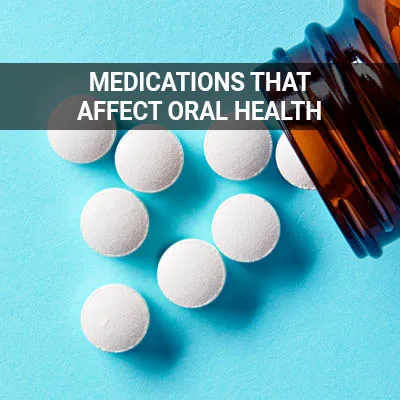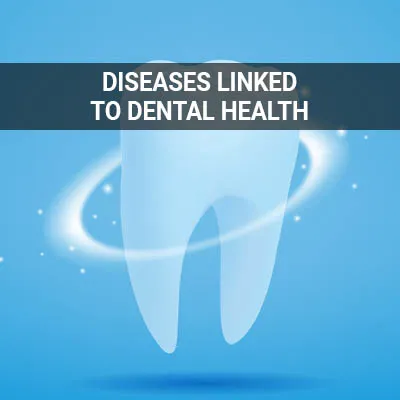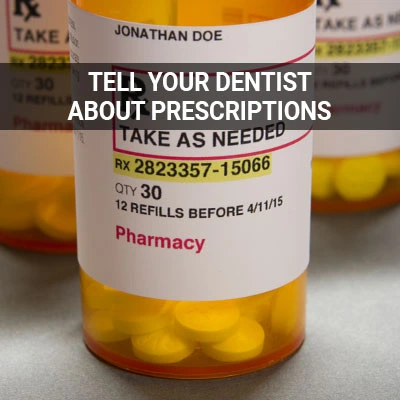Oral-Systemic Connection Miami, FL
Many patients are unaware of the oral-systemic link, referring to the link between dental health and the body's overall health . Routine visits with a complete health dentist may act as effective preventive care.
Total health dentistry is available at South Florida Dentistry in Miami and the surrounding area. We put our patients' safety and comfort first. Call us today at (305) 203-4097 to schedule an appointment or to learn more about our services.
The Connection Between Oral and Physical Health
Good oral health is a crucial aspect of overall physical health. While there is no definitive evidence of a causal relationship, research has shown there is a significant association between oral health and general health. Poor dental health can affect overall physical health by causing pain and impacting how people speak, their quality of life, and their well-being.
It is crucial to maintain and care for every part of the body, especially the mouth. Every aspect of the body's health affects other body parts and systems. Good oral health is essential to staying healthy, functioning normally, and avoiding painful and costly health complications.
“What research bridges the gap between physical health and oral health?”
Oral Health and Heart Disease
Though research on the relationship between the two is still ongoing, existing evidence makes it evident that oral health and heart disease are positively correlated. For instance, poor dental hygiene can increase a patient's risk of developing a bacterial infection in the bloodstream, affecting the heart valves. As such, patients with artificial heart valves may particularly benefit from regular visits with a total health dentist.
Furthermore, patients have a two to three times higher risk of having a heart attack, stroke, or another serious cardiovascular event if they have periodontitis. Heart conditions such as atherosclerosis, dyslipidemia, and hypertension link to periodontal microorganisms. Additionally, there is a positive correlative relationship between tooth loss patterns and coronary artery disease.
“Though research on the relationship between the two is still ongoing, existing evidence makes it evident that oral health and heart disease are positively correlated in some way.”
The Effects of Chronic Oral Inflammation
The idea of the oral-systemic link is nothing new. According to the American Dental Association (ADA), it has been around since at least the late 19th century. However, it has not been until the last several decades that experts have found proven associations between oral health and systemic diseases (specifically cardiovascular diseases and diabetes). There are two possible reasons for this:
- Chronic inflammation in the oral cavity increases inflammatory markers’ levels in the bloodstream, negatively affecting the immune system.
- The oral cavity collects disease-causing bacteria that can enter the bloodstream.
As such, any failure to prevent or control periodontal diseases can increase the risk of adverse health outcomes. Invasive dental procedures can also increase the risk of stroke and myocardial infarctions. However, dental care may also have a positive impact on overall health: Treating periodontal diseases can effectively treat type 2 diabetes. Enhanced oral hygiene may prevent respiratory infections and death from pneumonia in elderly patients. In any case, dental care must be carried out with patients' total health in mind.
“Chronic inflammation in the oral cavity increases levels of inflammatory markers in the bloodstream, negatively affecting the immune system.”
Check out what others are saying about our dental services on Yelp: Oral-Systemic Connection in Miami, FL
Oral Health and Nutrition
Oral health and diet affect each other directly. What a patient eats will naturally influence the health of the tissues in the mouth, while the health of the mouth will affect the patient's ability to eat. Additionally, excessive sugar consumption can increase the risk of developing cavities. Frequent consumption of acidic foods and beverages can also increase the risk of erosive tooth wear.
Thus, good oral health is dependent on proper nutrition and healthy eating habits. Patients should avoid natural and added sugars, along with processed starches and low pH-level acids. Eating a nutritious, well-balanced diet and limiting the consumption of between-meal snacks can benefit both a patient's overall and oral health.
“What a patient eats will naturally influence the health of the tissues in the mouth, while the health of the mouth will affect the patient’s ability to eat.”
Questions Answered on This Page
Q. How does oral health affect heart health?
Q. What are the effects of chronic oral inflammation on the rest of the body?
Q. How does diet affect overall health?
Q. What research bridges the gap between physical health and oral health?
Q. What health conditions are linked to the mouth?
People Also Ask
Q. What is OralDNA diagnostic testing?
Q. Why is preventative care important? How can it save you money?
Q. What diseases can an OralDNA test detect?
Q. How does medication for diabetes impact oral hygiene?
Q. What is the role of a healthy mouth baseline during an annual wellness visit?
Q. What family members may need extra help with their oral hygiene?
Conditions Linked To the Mouth
Problems in the mouth can affect the rest of the body. Poor oral health has a connection to conditions including dementia and rheumatoid arthritis. Other conditions that oral health can contribute to include:
- Cardiovascular disease: Oral bacteria can cause infections and inflammation that may have a link to heart disease and artery-clogging.
- Endocarditis: Endocarditis happens when oral bacteria spread through the bloodstream and infect areas of the heart such as the heart chamber lining or valves.
- Pneumonia: Oral bacteria can enter the lungs and cause respiratory diseases like pneumonia.
- Pregnancy complications: Gum disease has a connection to pregnancy complications, including low birth weights and premature births.
“Poor oral health has a connection to conditions including dementia and rheumatoid arthritis.”
Frequently Asked Questions
Q. What causes dental decay?
A. A combination of factors can cause dental decay. Some common factors include oral bacteria, eating and drinking sugary foods and beverages, and failure to clean teeth well.
Q. How can I prevent dental decay?
A. The best way to prevent dental decay is through proper oral hygiene. A good hygiene routine includes brushing teeth twice a day and flossing teeth at least once. This will remove plaque and debris that result in decay-causing bacteria to build up.
Q. What is plaque?
A. Plaque is a sticky film that constantly develops on teeth. It consists of bacteria that produce acid and, without removal, can harden into tartar. This can eventually cause tooth decay and loss.
Q. What is an abscess?
A. An abscess is a pocket of pus that develops in the teeth or gums. It often forms due to a bacterial infection resulting from poor oral hygiene or an untreated cavity or injury. Abscesses can cause severe pain and require prompt treatment to prevent further oral and overall health complications.
Q. What are the risk factors associated with gum disease?
A. Gum disease happens when an infection occurs in the tissues that hold the teeth in place. Some common risk factors include genetics, smoking or chewing tobacco, certain medications, crooked teeth, poorly fitting dental appliances, and broken fillings. Other risks associated with gum disease include pregnancy and complications that cause compromised immunity.
Dental Terminology
Call Us Today
A healthier life begins with a healthier mouth. We at South Florida Dentistry may be able to help. Call us today at 305-203-4097 to schedule an appointment or to learn more about our services.
Helpful Related Links
- American Dental Association (ADA). Glossary of Dental Clinical Terms. 2025
About our business, and website security
- South Florida Dentistry was established in 1997.
- We accept the following payment methods: American Express, Cash, Check, Discover, MasterCard, and Visa
- We serve patients from the following counties: Miami-Dade County
- We serve patients from the following cities: Miami, Doral, Hialeah, Fontainebleau, Hialeah Gardens, Sweetwater, Coral Gables, Kendall, South Miami, Miami Lakes, Miami Gardens, Medley, Westchester and Brickell
- Healthgrades. View Background Information and Reviews
- Norton Safe Web. View Details
- Trend Micro Site Safety Center. View Details
Back to top of Oral-Systemic Connection










